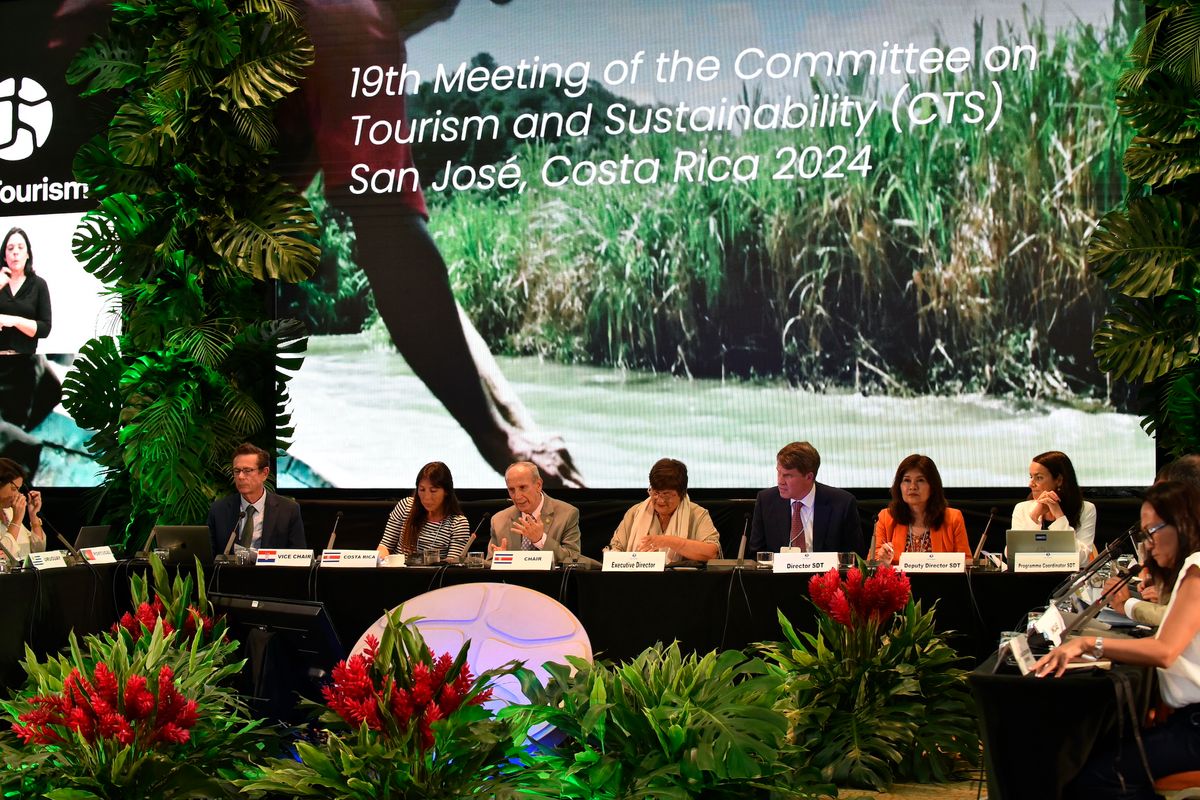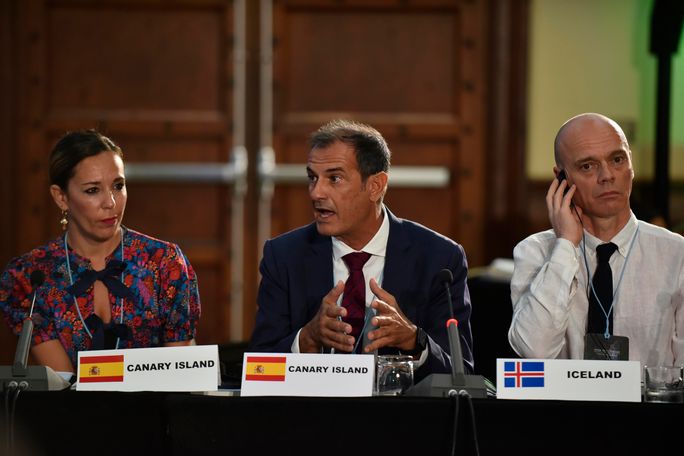


Costa Rica recently hosted the 19th Meeting of the Committee on Tourism and Sustainability (CTS) of UN Tourism. Representatives from six member countries, international experts, and special guests gathered to discuss the future of sustainable tourism.
Costa Rica, as both the host and chair of the CTS until 2027, emphasized its leadership and dedication to sustainable tourism practices. As part of the international delegation of nations that make up the committee of UN Tourism, representatives from Croatia, Fiji, Portugal, Uruguay and Zimbabwe attended the conference.

Delegates at the 19th Meeting of the Committee on Tourism and Sustainability (CTS) of UN Tourism in Costa Rica. (Photo Credit: Costa Rica Tourism Board)
Five key themes were discussed with experts sharing best practices and recommendations for achieving a balance between destination development and the protection of biodiversity and cultural heritage.
The Future of Tourism – Addressing the industry’s growth, its role in promoting well-being, and Costa Rica’s use of the Social Progress Index (SPI) to assess tourism’s impact.
Managing Tourism’s Impact – Exploring the balance between tourism growth and environmental sustainability, including how countries like Iceland have tackled these challenges.
Nature-Positive Tourism – Discussing the importance of biodiversity conservation, ecosystem restoration, and minimizing tourism’s environmental footprint.
Climate Action and Circularity – Examining the effects of climate change on tourism and the need for mitigation strategies, including Costa Rica’s contribution to the COP29 agenda.
Green Certifications and Claims – Reviewing international guidelines for ensuring tourism benefits local communities and economies while minimizing its environmental impact.
Costa Rica’s Minister of Tourism, William Rodríguez, highlighted the significance of the event, saying: “Costa Rica is honoured to lead discussions on issues critical to the environmental, social, and economic future of global tourism.”
Adriana Acosta, Brand Director of Essential Costa Rica said: “Without a doubt, Costa Rica hosting a high-level event such as the meeting of the UN Committee on Tourism and Sustainability reaffirms our country’s leadership in the matter. In addition, it is an opportunity to show the world our commitment to the fight against climate change, which we are addressing through the 2035 Strategy of the Country Brand.”